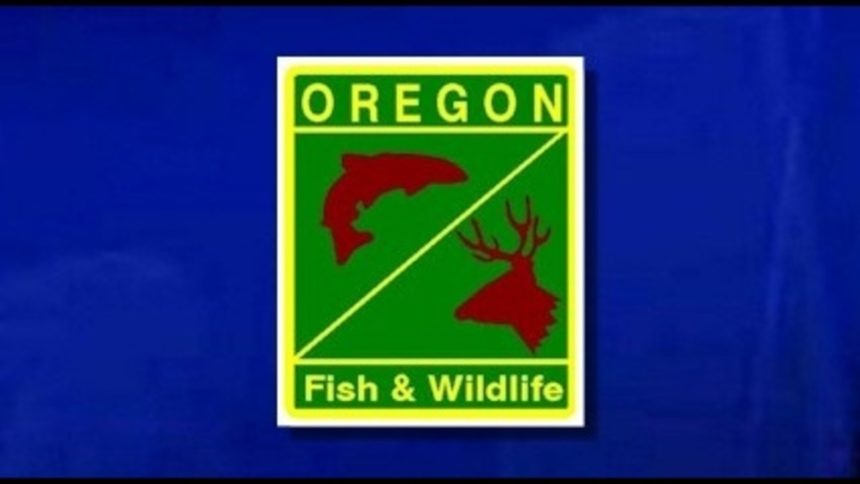ODFW seeks input on possible E. Oregon archery, Cascade Elk season changes

SALEM, Ore. (KTVZ) — The Oregon Department of Fish and Wildlife is in the third year of a review of its big game regulations meant to improve regulations and align them with current biological objectives for wildlife and preferences among hunters.
The department is looking for feedback on the latest concepts for changes, which would take effect in the 2021 hunting seasons. Those concepts are to change general season deer and elk archery seasons in Eastern Oregon to controlled seasons, move general Cascade elk season to early November OR allow deer hunting to continue during general Cascade elk season.
The general season archery structure for deer and elk in Eastern Oregon began in 1979 (when archery hunting was less popular, technology was limited and success rates were lower) and the current 30-day general season beginning in late August/early September has been in place since 1983.
The season was originally intended to draw some hunters away from crowded rifle seasons.
Over the last 40 years, archery hunting has certainly become increasingly popular, with participation and harvest now exceeding limited entry rifle bull hunts in some units—even while ODFW surveys show the majority of hunters would prefer to rifle hunt.
Biologists believe the structure of the season is also contributing to complaints about over-crowding among archery hunters and elk distribution problems, with more elk on private land and fewer on public land during hunting seasons.
If this change were to happen, total archery tag numbers available for eastern Oregon would be 5 percent less than 2019 current participation numbers, with moderate reductions in some of the highest use units but increases in surrounding less popular units.
Opportunities would be managed similar to rifle hunting, with unit-level hunts in the Blues and Wallowa Mountains and multi-unit hunts in the High Desert, East Cascade and Columbia Basin.
As with rifle hunts, eastern Oregon archery hunt tags would not be valid for general archery seasons in western Oregon. Western Oregon archery for both deer and elk will remain a general season.
For mule deer, population numbers have declined in Oregon and throughout the West since their peak in the 1980s, due to many factors including nutrition, vehicle collisions, poaching and predation.
Many units are below management objectives. Biologists believe a general season is no longer an appropriate tool for managing mule deer.
As with elk, if this change takes effect, tag numbers offered would mostly reflect recent numbers on archery participation in the units (derived from mandatory harvest survey data), except in those units with significant population declines where controlled tags have been decreased. Archery deer tags for eastern Oregon units would no longer be valid for western Oregon.
The final major concept being discussed would move the general West Cascade rifle elk season from early October to early November, or, end the weeklong closure of deer season during Cascade elk season.
In recent decades, due to public land habitat changes and other factors, Cascade elk season has become a poor-quality hunt with success rates in the low single digits.
ODFW said moving the season to November would improve hunt quality, while the other option would allow general season hunters in western Oregon to pursue deer and elk simultaneously for the seven days of Cascade elk season.
For more details on these proposals and to comment through an online form, please see ODFW’s Big Game Review page, https://myodfw.com/articles/big-game-review Hunt tables including initial proposals for tag numbers will also be available on the page.
“Our challenges with archery season stem from managing archery hunting and rifle hunting differently — 40 years ago, there was a reason to do so, but those reasons no longer exist,” said Nick Myatt, ODFW Project Lead for the review of big game regulations.
“Our goal in this big game review is to improve hunting regulations, allocate hunting opportunity fairly and consistently with hunter preferences, and of course ensure that our hunting seasons are structured in a way that meet our biological objectives for wildlife species.”
To accurately assess hunter preferences, ODFW has been working with Responsive Management, a professional survey and research firm that specializes in natural resource issues.
The firm has randomly surveyed 4,000 resident hunters about deer and elk hunting and also hosted an open online public form that brought nearly 1,400 comments from almost 10,000 unique visitors to the site.
The surveys are available on the Big Game Review page. While individual hunters have varying opinions, these random surveys found that as a whole, a great number of Oregon’s hunters support rather than oppose these concepts.
“We thank all the hunters who have provided input, and now we’re asking for your opinions again on these latest concepts,” said Myatt. Hunters who are interested should use the form on the Big Game Review page to comment. Feedback will be collected by department staff through early August.
Using the survey research and other feedback from hunters, ODFW will develop formal proposals for 2021 Big Game Regulations to take to the commission; these proposals will be available online the last two weeks of August.
Hunters and others will again have a chance to comment on these proposals through the normal Commission public process before the Commission meets virtually online on Sept. 11, when adoption of final 2021 Big Game Regulations is expected.